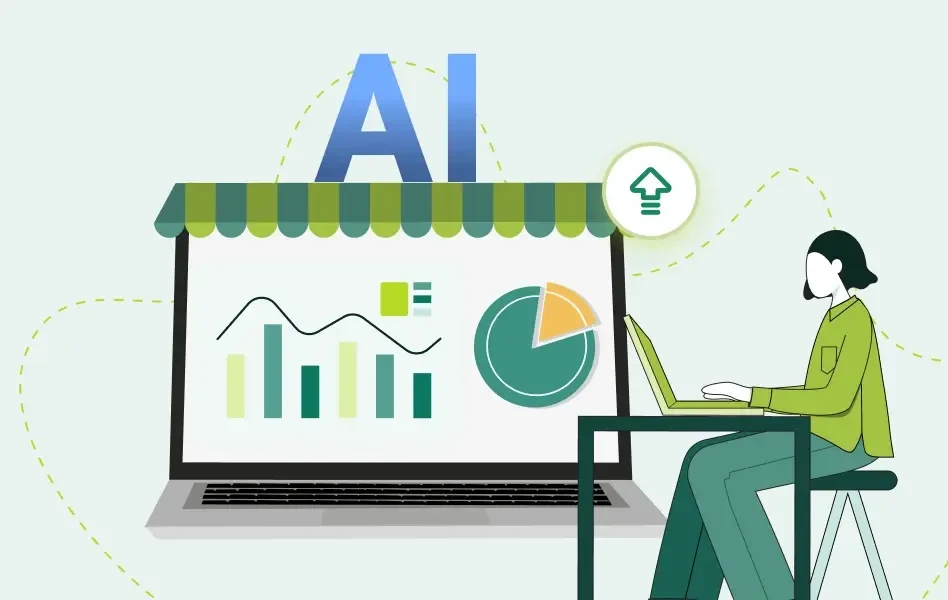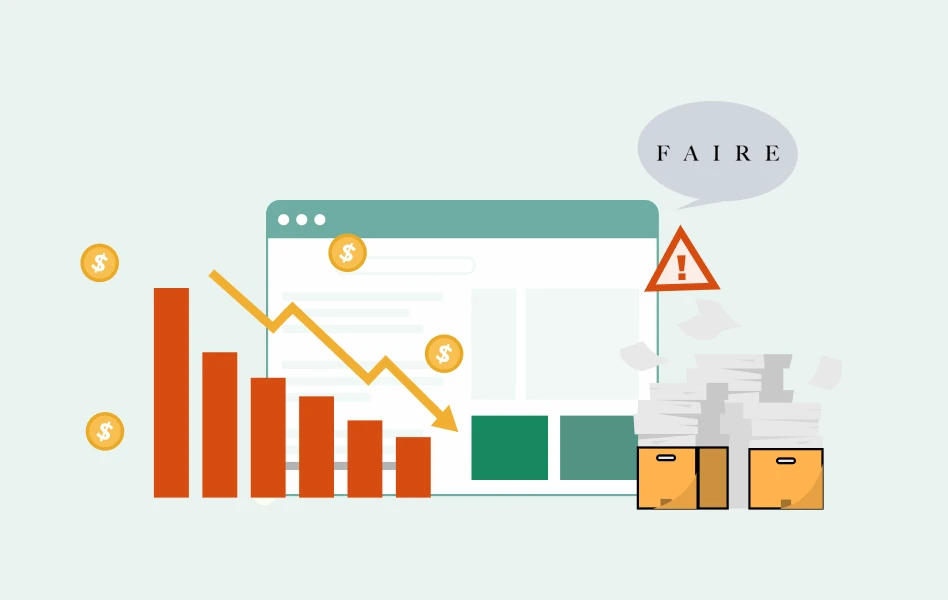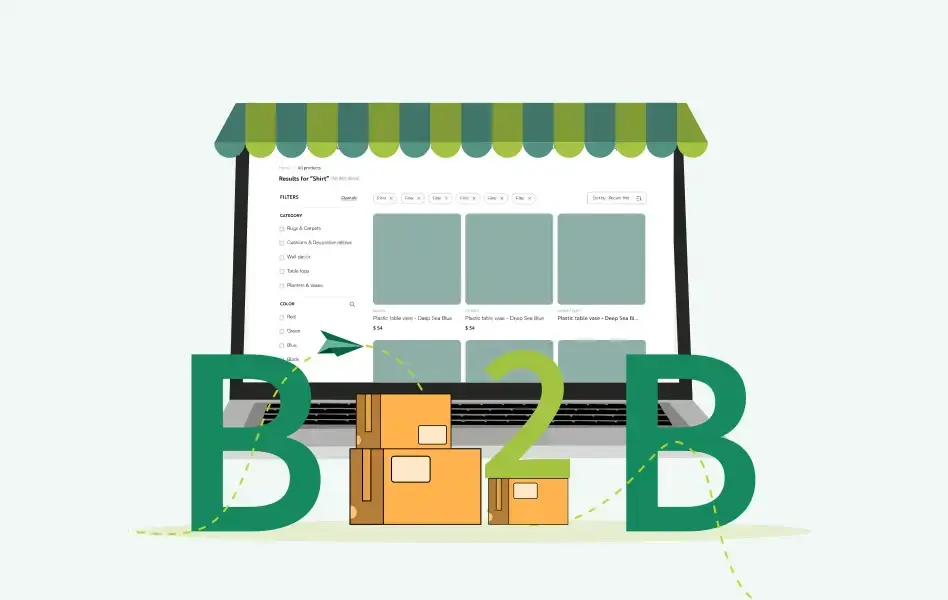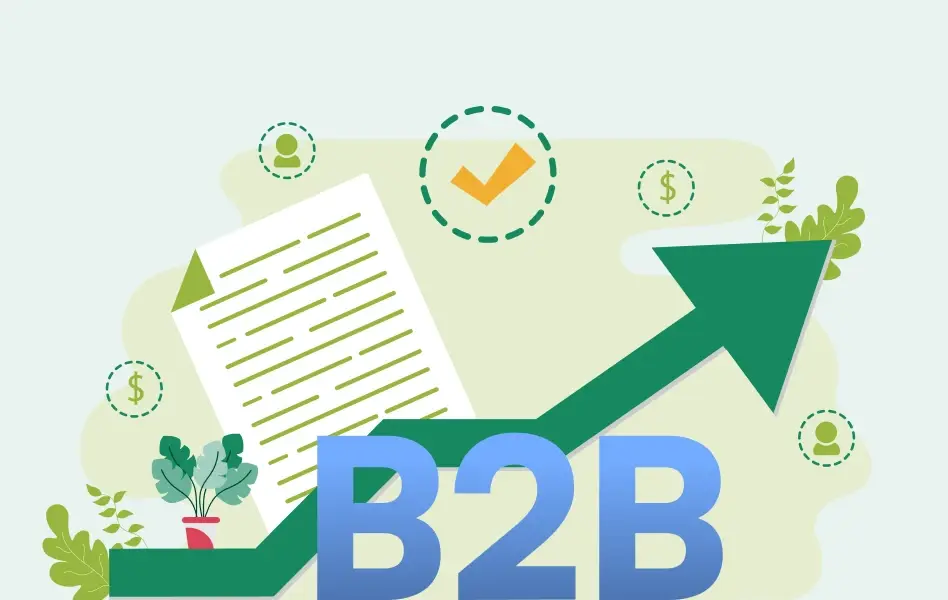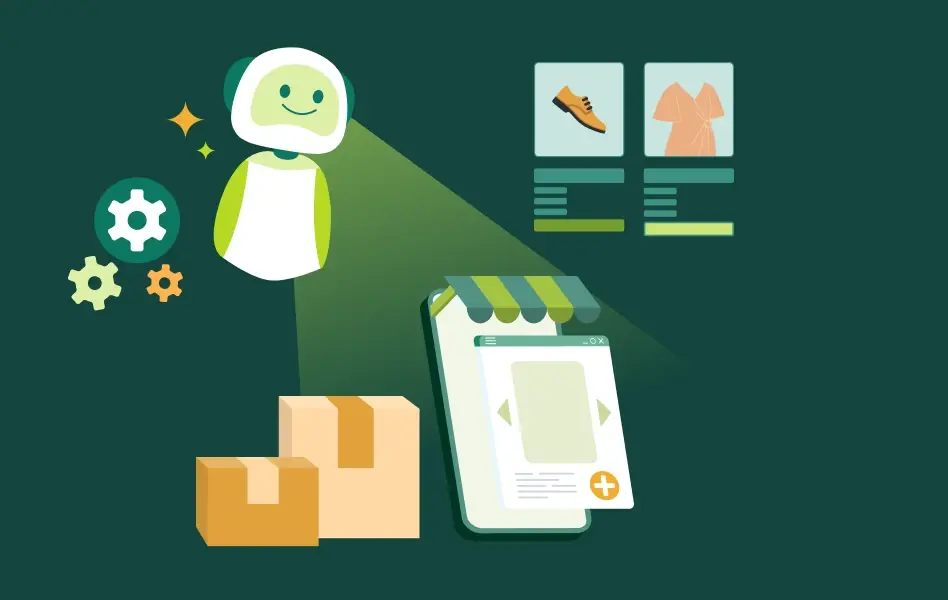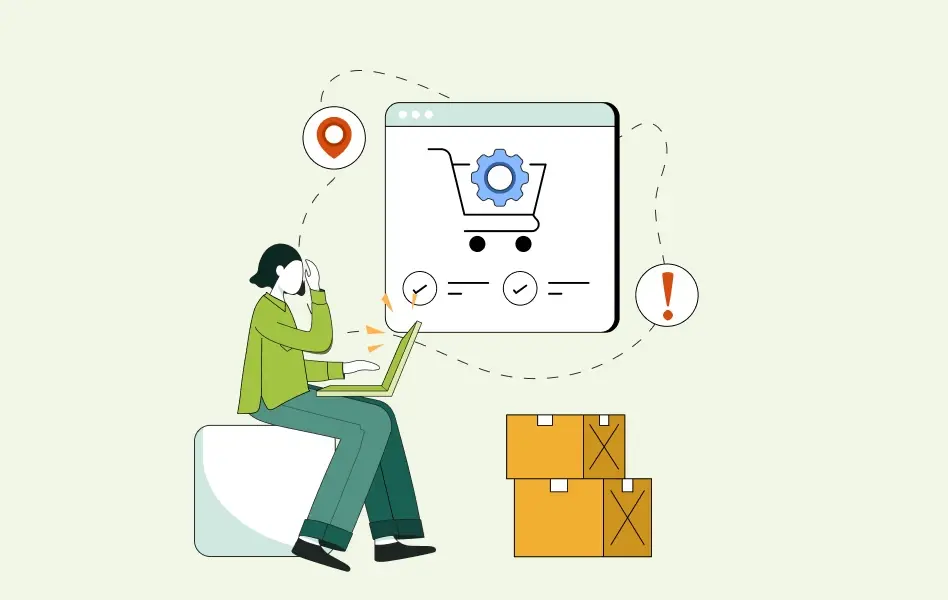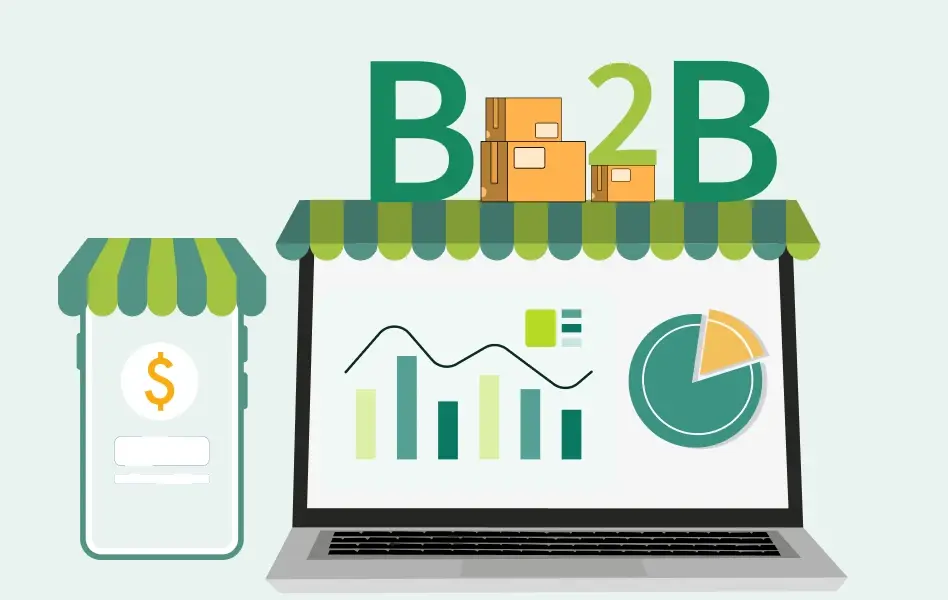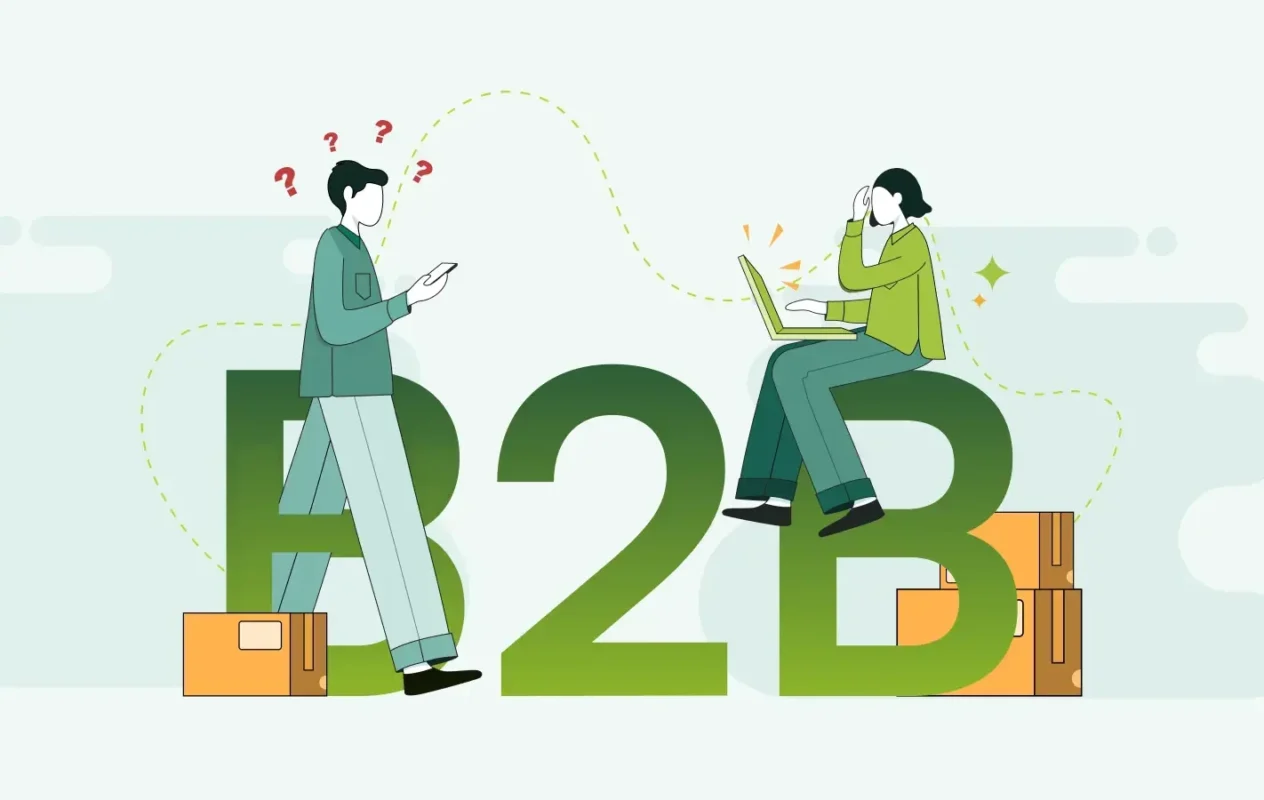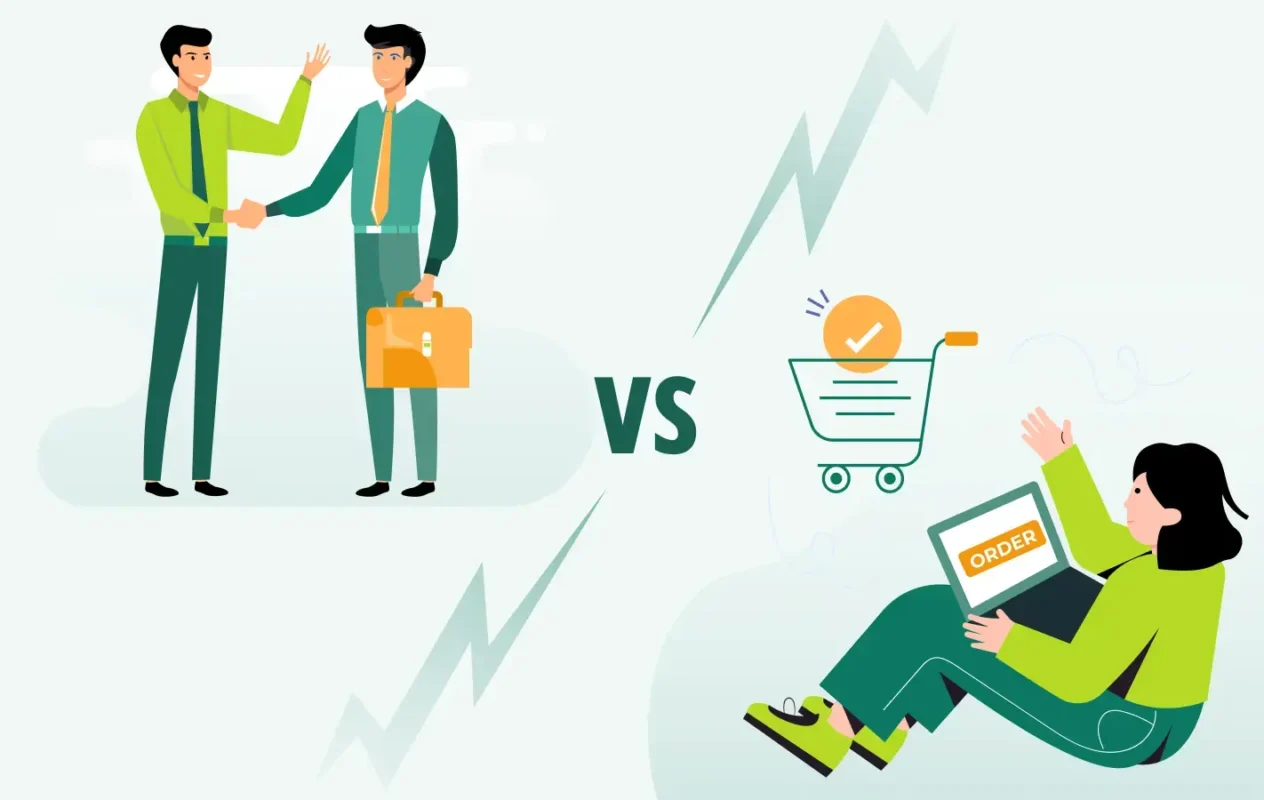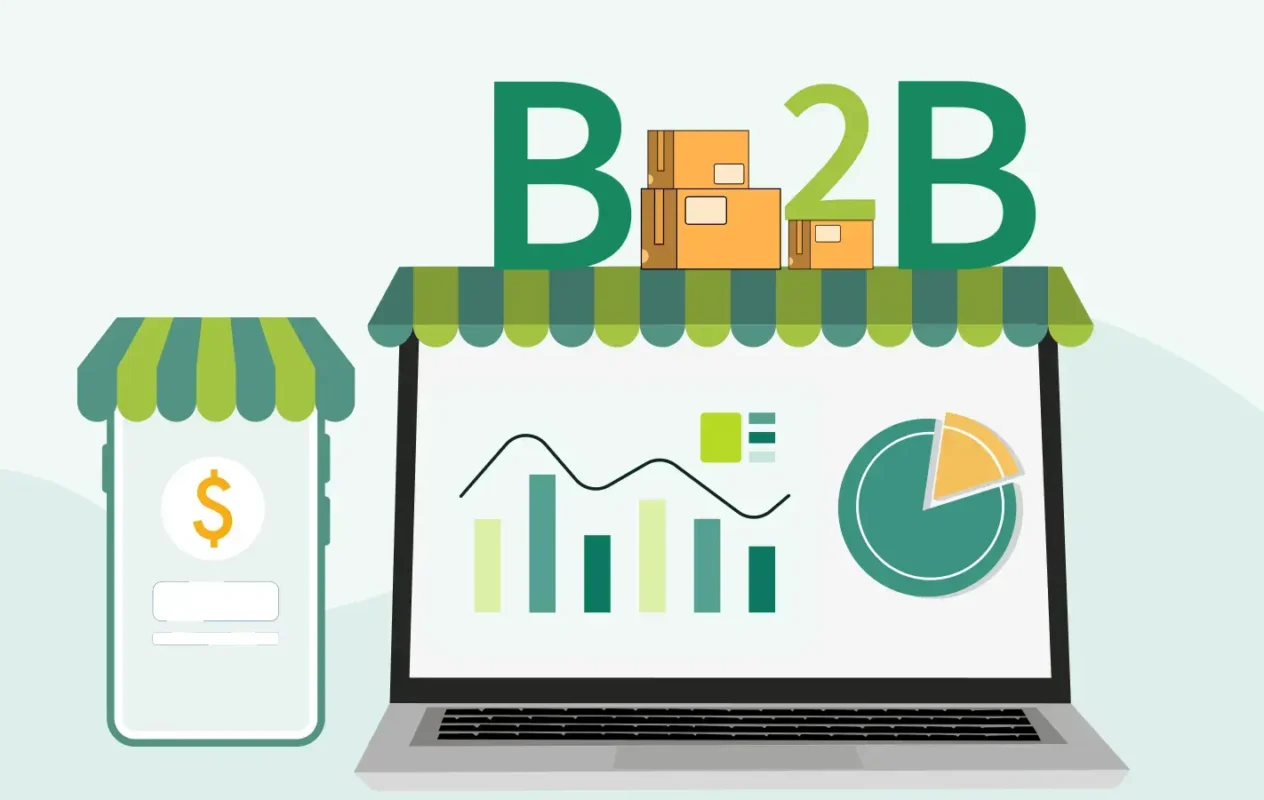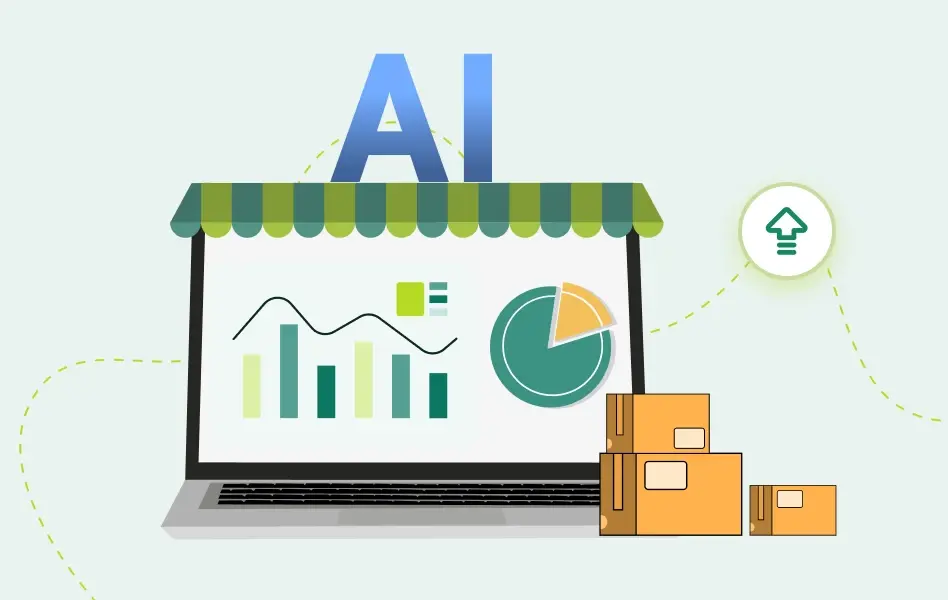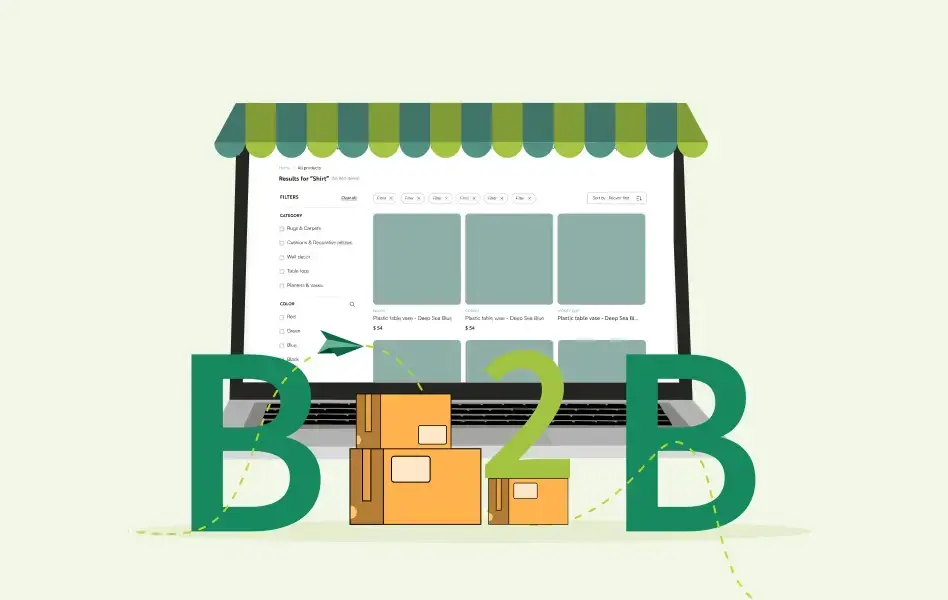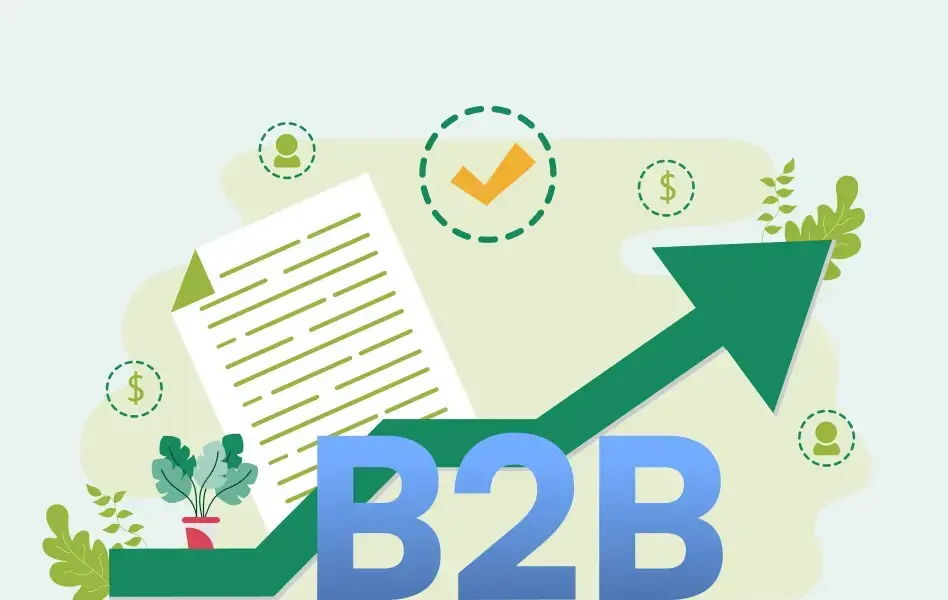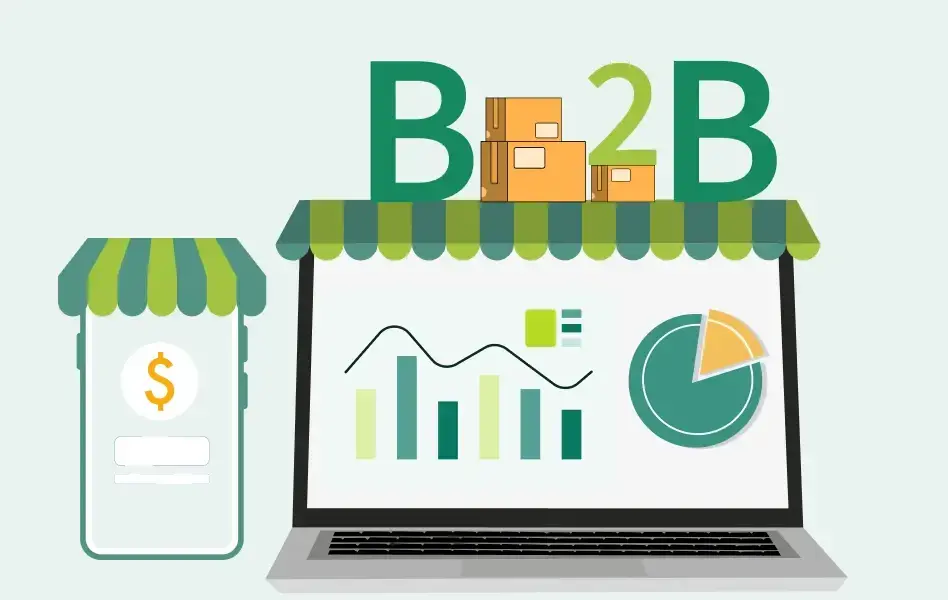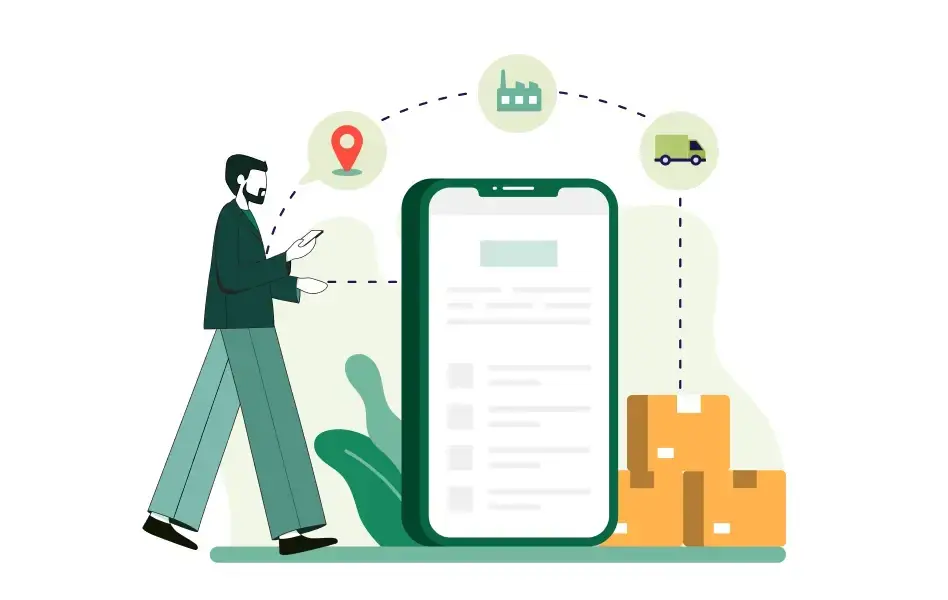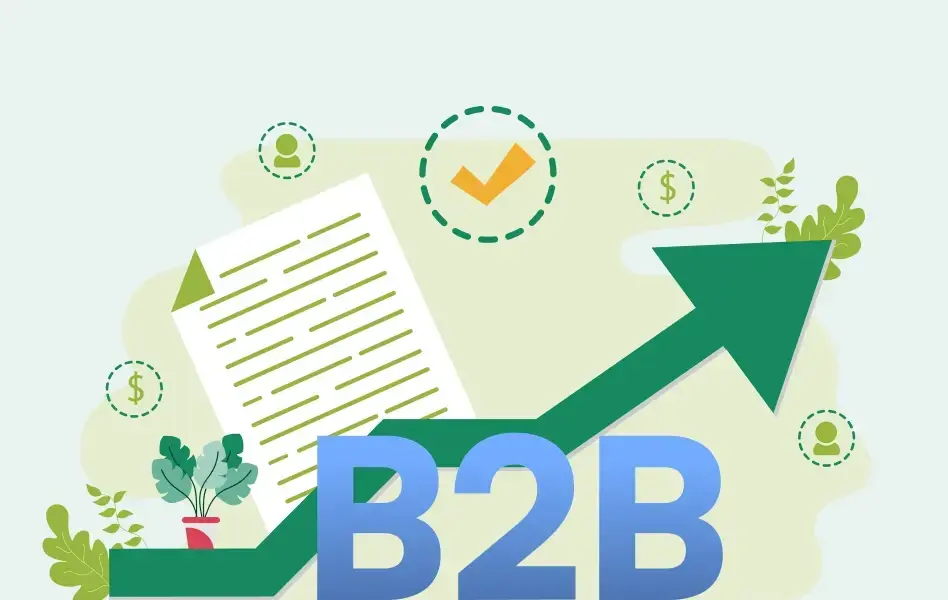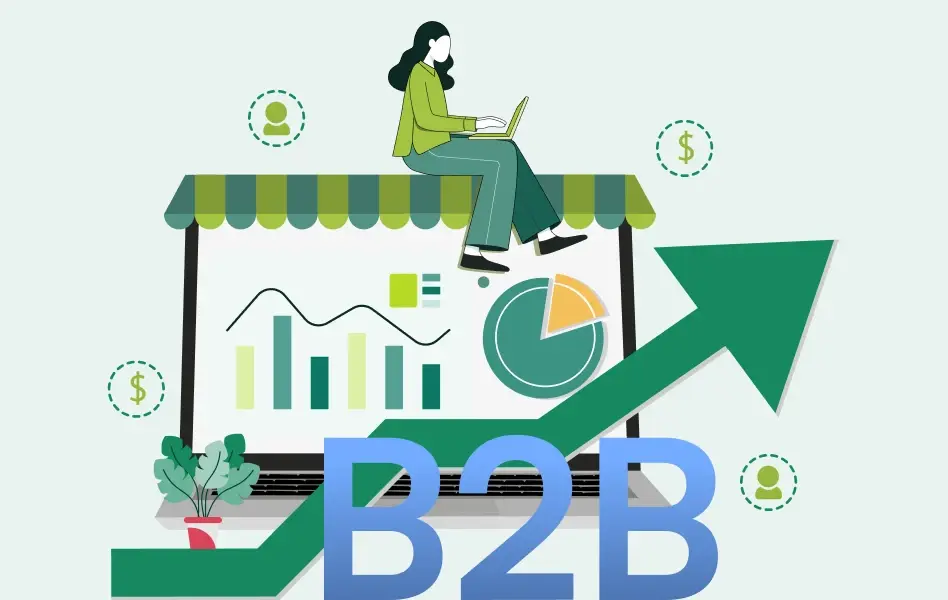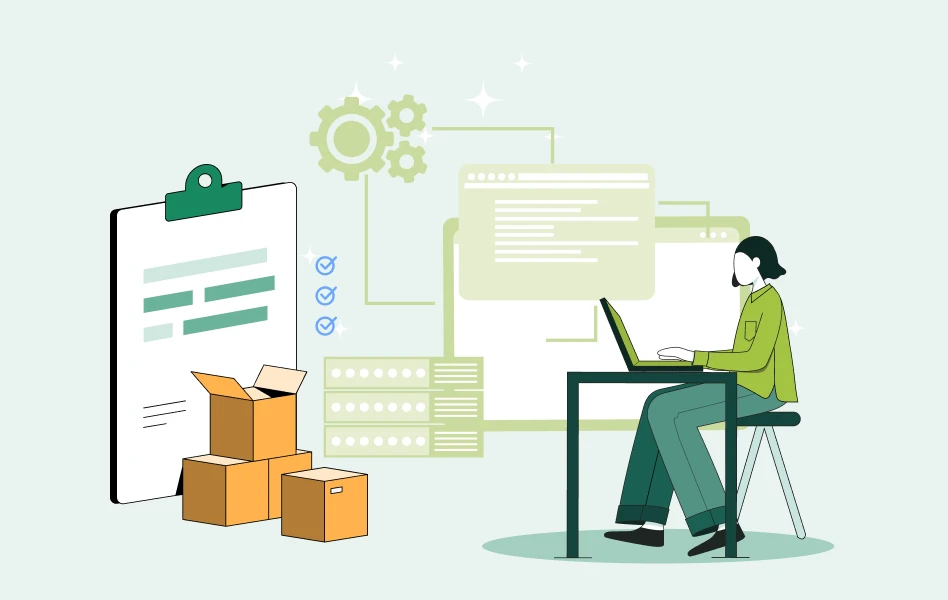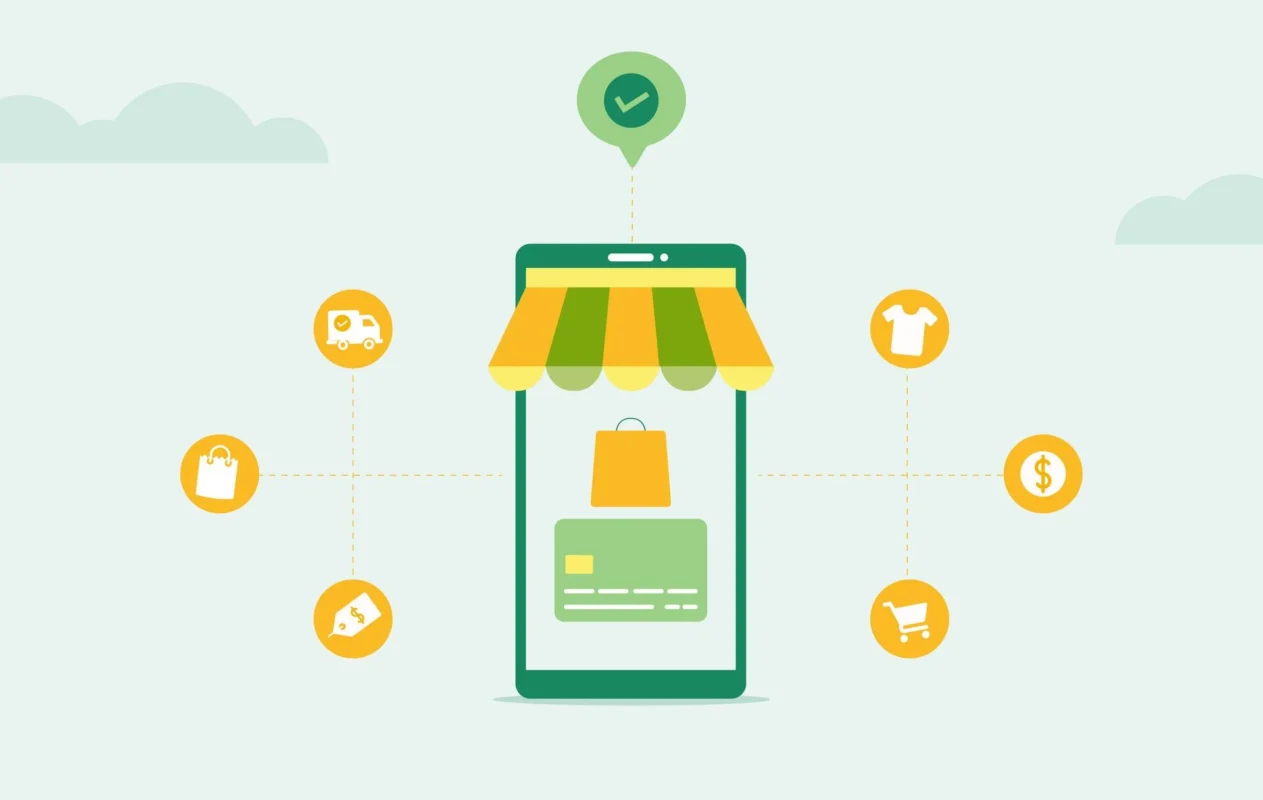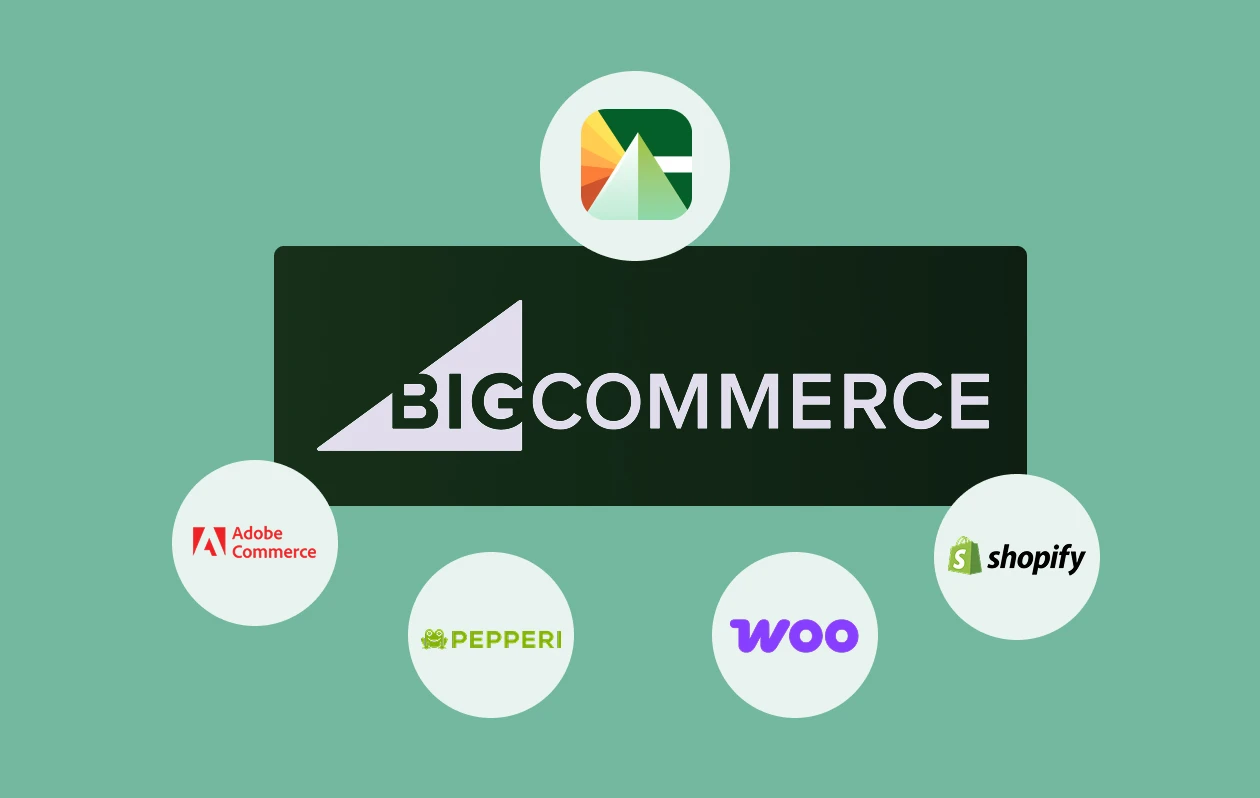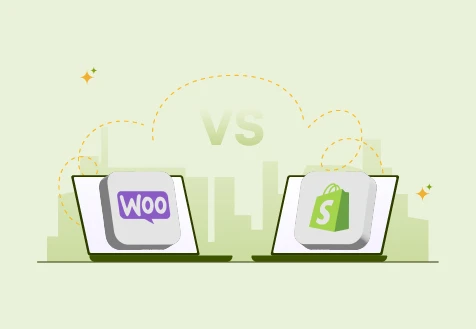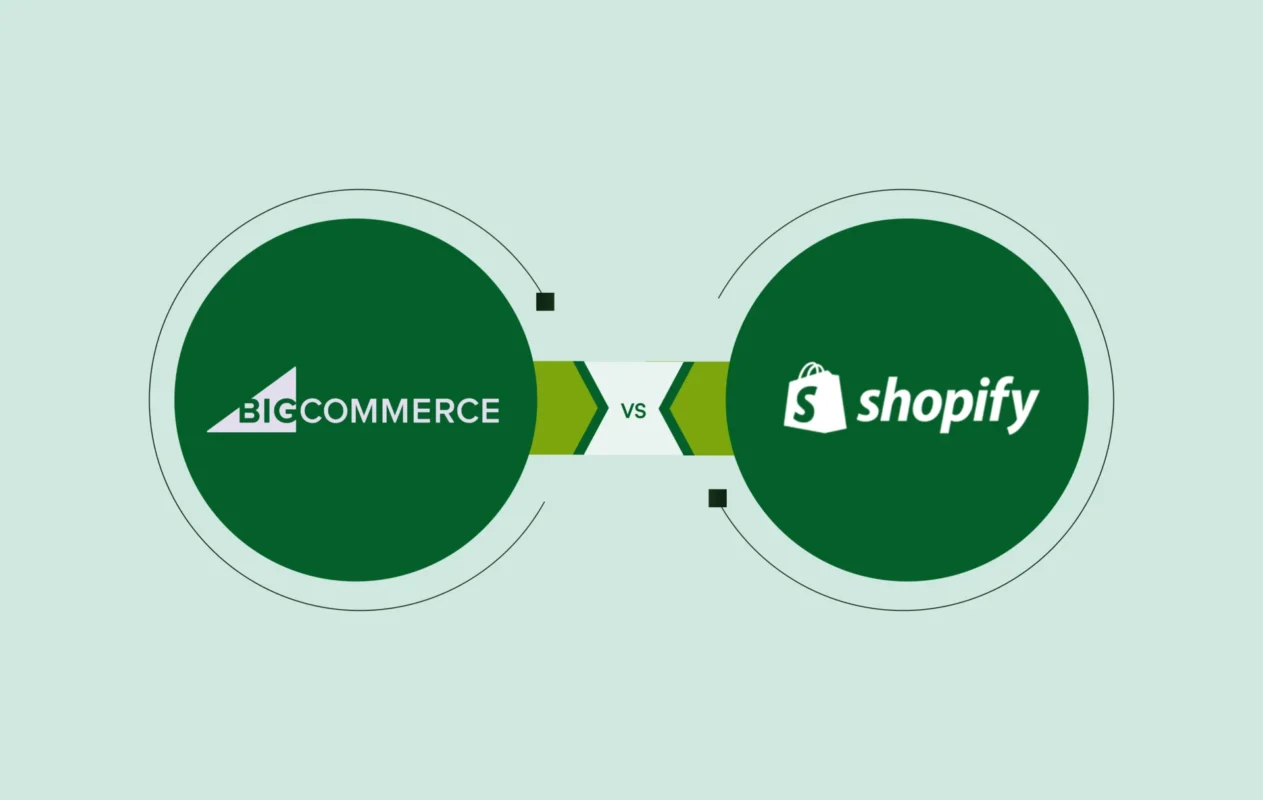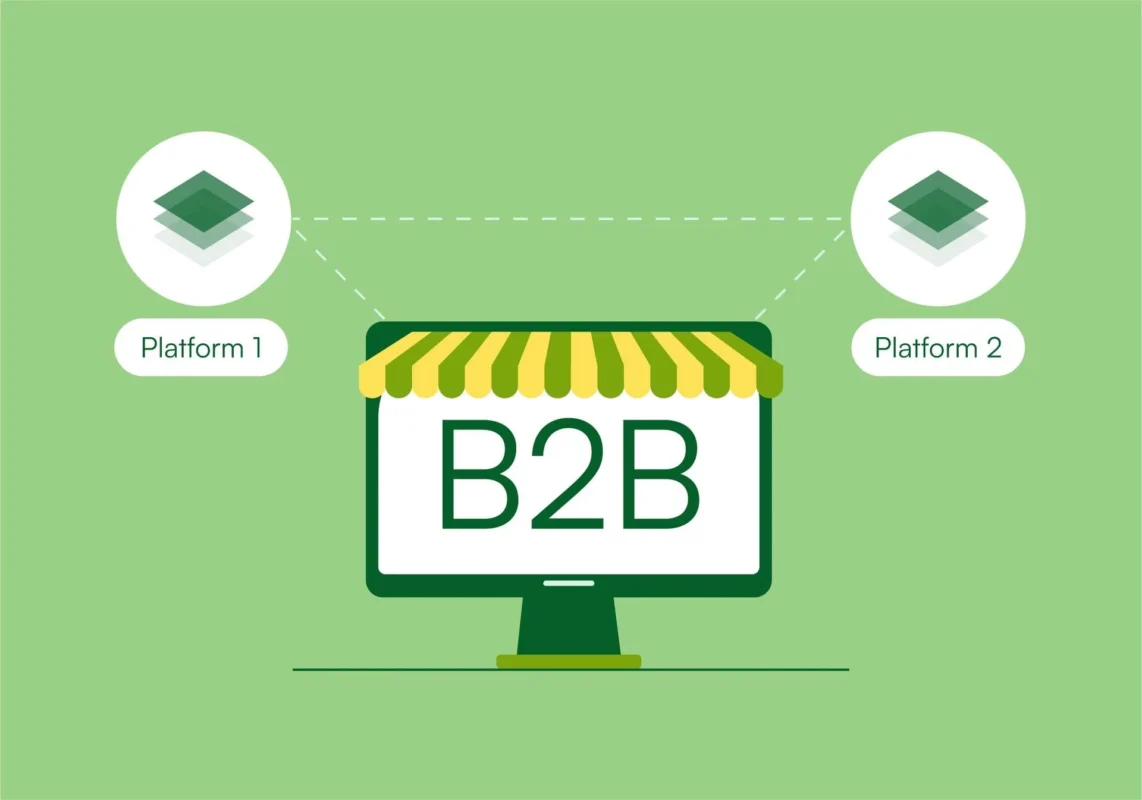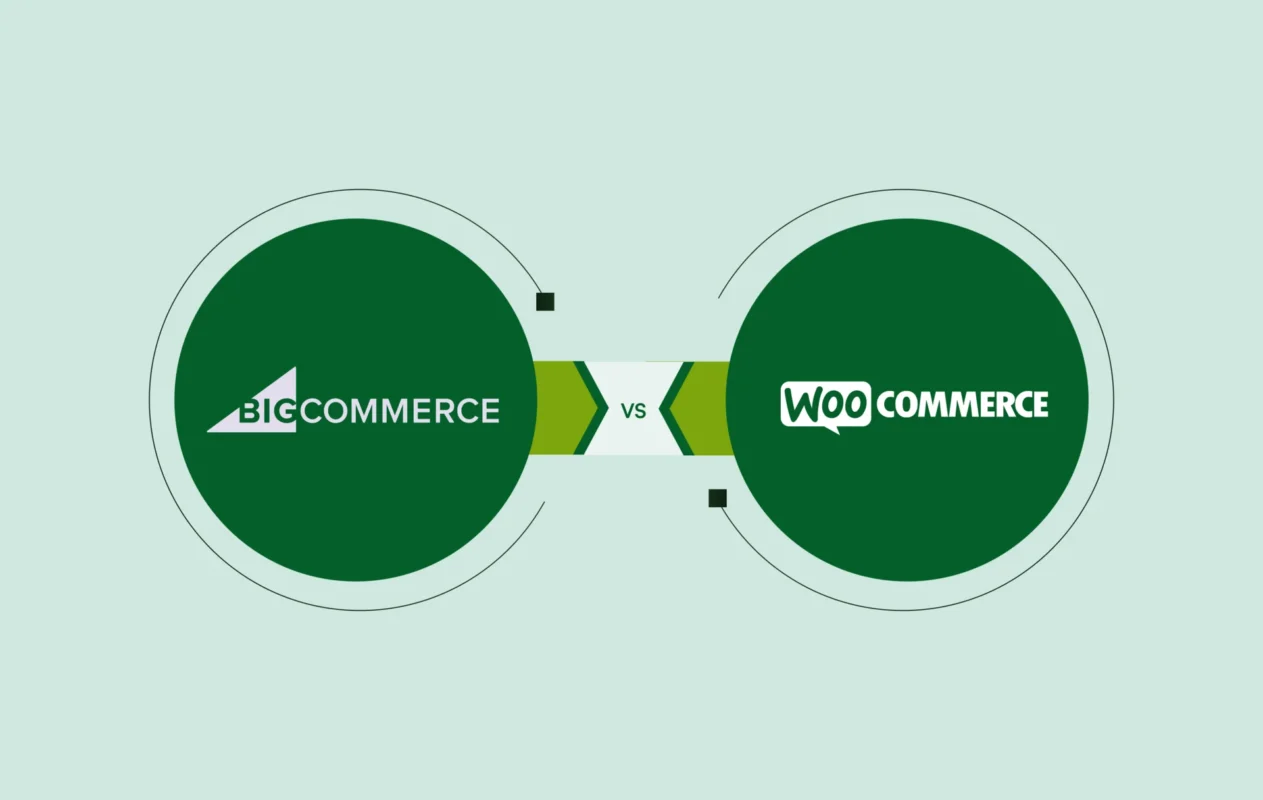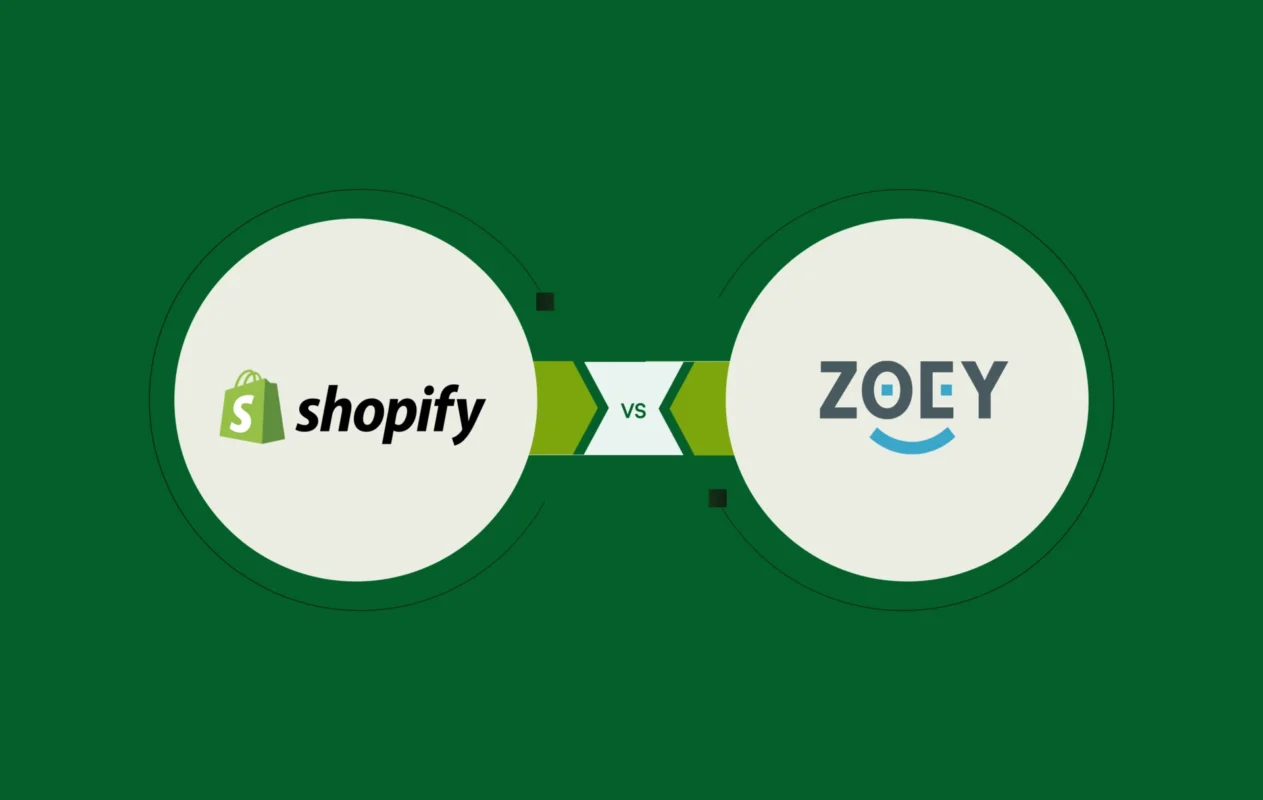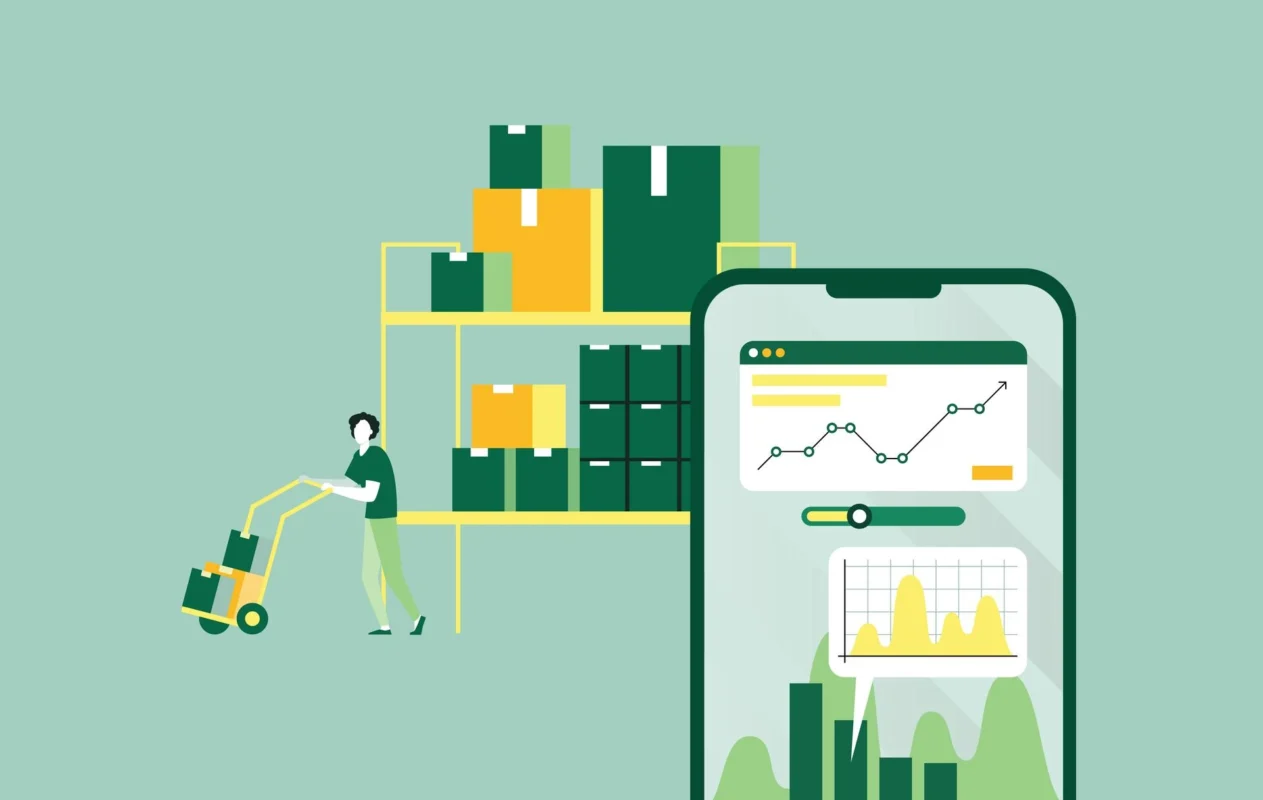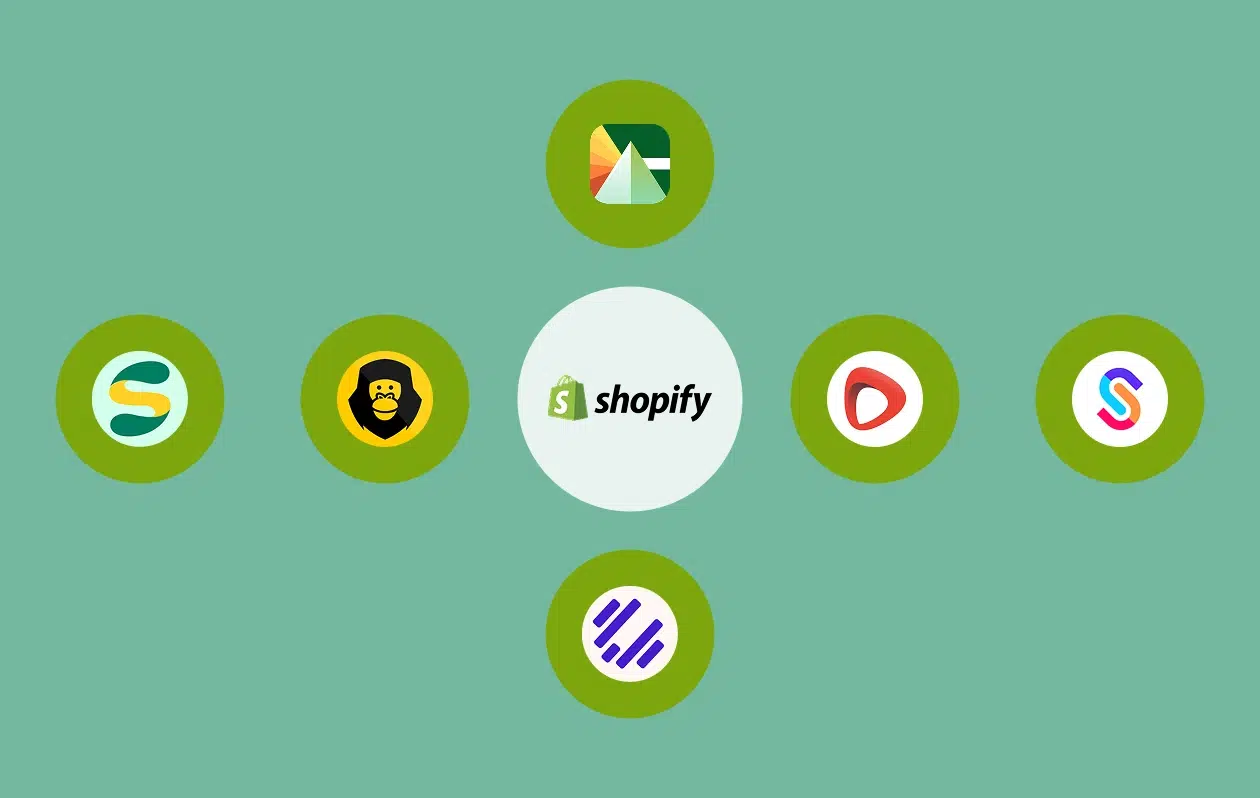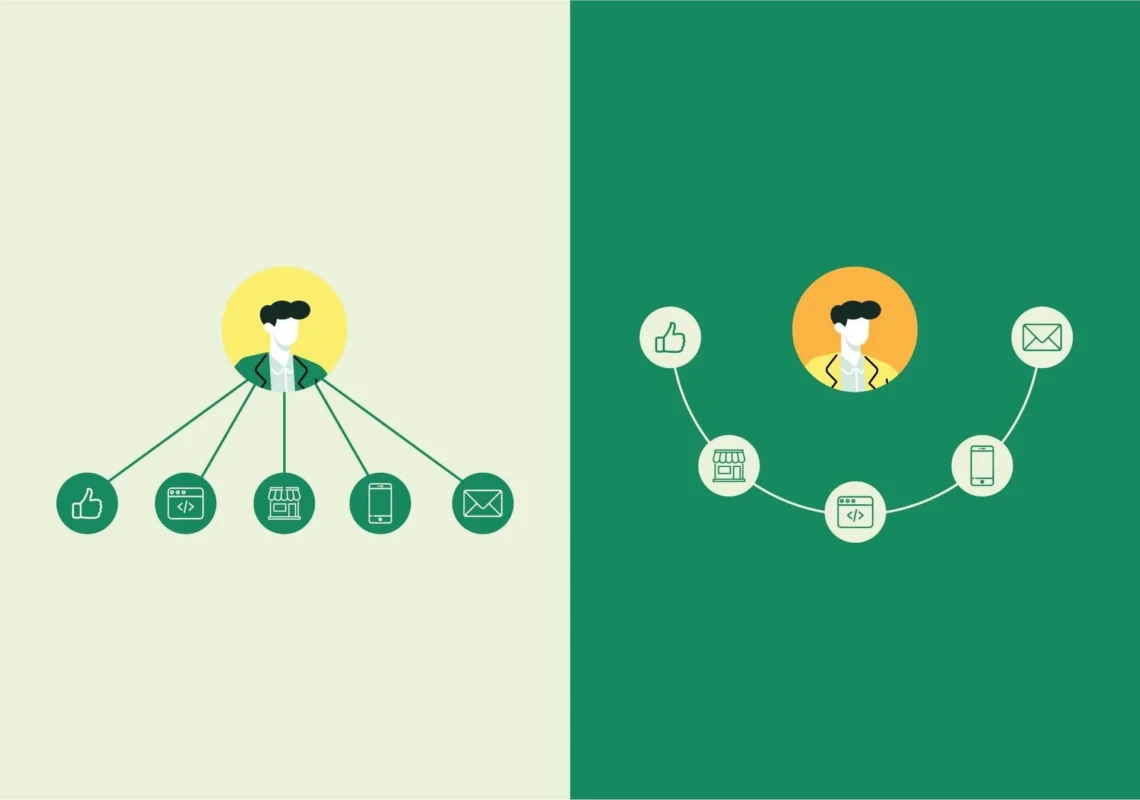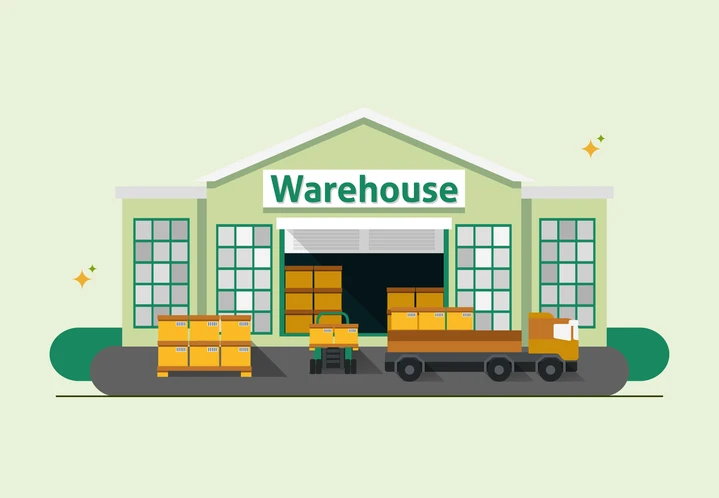Contents
AI isn’t coming to B2B ecommerce; it’s already here, reshaping how wholesale businesses operate, sell, and scale. Currently, 33% of B2B ecommerce companies in the US have fully integrated AI, and 61% of B2B retailers are leveraging it for personalization, content generation, and customer service. The numbers tell a compelling story: businesses using AI for sales operations cut cycle times by 25% and slash operational costs by up to 60%.
However, what matters most is that the B2B ecommerce market reached $32.11 trillion globally in 2025 and is expected to reach $36.16 trillion by 2026. With more B2B sales happening digitally, by the end of 2025, AI in B2B ecommerce will become the engine driving competitive advantage. Businesses that master the implementation of artificial intelligence don’t just survive; they dominate their markets through smarter pricing, personalized buyer experiences, and automated operations that scale effortlessly.
This guide walks you through everything you need to implement artificial intelligence in wholesale ecommerce, including proven use cases, measurable benefits, real implementation challenges, and best practices for digital transformation to leverage artificial intelligence for business growth, and making strategic decisions based on customer data. Whether you’re a manufacturer, distributor, or wholesaler, you’ll discover how AI can transform your operations without the fluff.
What is Artificial intelligence in B2B ecommerce?
Artificial intelligence (AI) in B2B ecommerce leverages machine learning, natural language processing, and predictive analytics to transform how wholesale distributors and manufacturers operate. It automates repetitive processes, personalizes buyer experiences, and optimizes decision-making across sales, marketing, and supply chain functions. By analyzing vast amounts of data in real time, AI enables businesses to anticipate customer needs, improve efficiency, and scale operations intelligently, achieving growth without proportional increases in cost or manual effort.
- 60% of B2B businesses invest in AI tech, with increasing budgets in 2025
- 67% of B2B companies use AI in ecommerce platforms
- 61% of B2B retailers leverage AI for personalization and customer service
- Businesses using AI reduce sales cycle times by 25% and cut costs by 60%
- Global B2B ecommerce market: $32.11 trillion in 2025
Top use cases: AI-powered search, chatbots, dynamic pricing, demand forecasting, personalized recommendations, fraud detection, inventory management, lead scoring, and predictive analytics.
Biggest benefits: Personalized customer experiences, data-driven decisions, operational efficiency, supply chain optimization, and scalable growth.
Main challenges: Data privacy, implementation costs, accuracy concerns, organizational resistance, integration complexity, and customization needs.
How to use AI in B2B ecommerce: Key use cases
AI delivers its strongest impact across four critical areas of B2B ecommerce. Each use case addresses specific pain points that traditional manual processes can’t match in speed, accuracy, or scale.
Here’s how AI in B2B ecommerce transforms operations across all critical areas:
| Use case category | AI application | Business impact |
| Enhancing the buyer experience | Intelligent search & personalized recommendations | AI-driven search and recommendation engines analyse browsing patterns and purchase history to surface relevant products instantly. This intelligent system analyses customer data and product data at the right time, delivering higher conversion rates through personalized experiences that traditional online stores can’t match. |
| Chatbots & intelligent customer support | Delivers instant responses 24/7, provides self-service solutions, and escalates complex issues to human agents. Speeds up resolution time, reduces support costs, and builds customer trust through constant availability. | |
| Dynamic pricing & quoting automation | Analyzes real-time market trends, customer profiles, and historical data to optimize prices in seconds. Maintains competitive edge, maximizes profit margins, and streamlines negotiations automatically. | |
| Personalized content & website experience | Powers dynamic product pages, targeted promotions, and adaptive navigation based on user behavior. Boosts user satisfaction, increases conversion rates, and provides insights to refine marketing strategies. | |
| AI-powered customer journey mapping | Analyzes customer interactions and behavior to uncover friction points and predict preferences. Creates smoother paths to purchase, improves retention, and delivers data-driven insights that boost revenue. | |
| AI-powered CRM systems | AI gives you a breakthrough from data silos and deploys AI-powered wholesale CRM systems that illuminate every interaction. Identifies best leads through emails, calls, and purchase history analysis. Automates follow-ups and forecasts churn. Helps sales teams cultivate relationships, close deals faster, and predict sales accurately. | |
| Optimizing sales & marketing | AI-powered lead scoring & predictive analytics | Analyzes browsing patterns, email engagement, and demographics to identify high-potential buyers. Reduces time on dead-end leads, increases focus on qualified prospects, and accelerates deal closure. |
| Automated marketing strategies | Handles email automation, social media retargeting, and hyper-focused segmentation autonomously. It consistently refines marketing campaigns by learning from vast amounts of data and user experience patterns. | |
| Competitive analysis & market intelligence | Gathers competitor pricing, tracks buyer trends, and monitors market shifts in real-time. Enables strategic adjustments to offerings, fine-tunes promotions, and discovers unexplored market niches. | |
| Content creation with generative AI | Generates product descriptions, blog posts, and marketing materials at scale, customized to your brand voice. Accelerates content production, maintains consistency, and reduces copywriting time significantly. | |
| Streamlining operations & supply chain | AI-driven demand forecasting | Examines historical sales, market trends, and seasonal fluctuations to predict future requirements. Prevents stockouts and overstocking, optimizes inventory investment, and improves customer satisfaction. |
| Automated inventory & order management | Synchronizes real-time data across ERP, warehouses, and ecommerce platforms. Processes orders faster, minimizes human errors, maintains accurate stock levels, and eliminates overselling. | |
| AI in supply chain optimization | Analyzes supplier performance, logistics routes, and cost variables to optimize operations. Reduces operational costs, accelerates deliveries, improves shipping efficiency, and builds customer trust. | |
| Order intelligence & fraud detection | Tracks real-time buying patterns and alerts to anomalies like unusual volumes or suspicious payments. Prevents fraud, catches errors early, protects revenue, and ensures safe transactions for clients. | |
| Modernizing business models & integration | AI for business model expansion | Enables new revenue streams like AI-driven marketplaces connecting buyers and sellers. Unlocks cross-selling and upselling opportunities, creates strategic partnerships, and streamlines buying processes. |
| Better internal system integration | AI-driven integrations link ERP, CRM, and ecommerce platforms for real-time information flow. Eliminates manual data entry, provides a unified business view, increases team efficiency, and reduces operational errors. | |
| Real-time market data & insights | Provides real-time analytics on market conditions, consumer behavior, and opportunities. Enables quick pivots, supports strategic product decisions, and maintains competitive positioning in evolving markets. |
Benefits of using AI in B2B ecommerce
The benefits of AI in B2B ecommerce extend far beyond simple automation; it transforms entire business models. Its success isn’t just about closing deals; it’s about creating frictionless, data-powered experiences that strengthen relationships over months and years. Using AI in B2B ecommerce effectively makes this possible by streamlining operations, customizing interactions, and enabling faster, smarter decisions at scale.
1. Personalized customer experiences
AI delivers tailored shopping experiences that B2B buyers now expect. From intelligent product recommendations to AI-powered search, buyers can find what they need more quickly, thereby reducing search time. Chatbots provide 24/7 support, answering questions instantly instead of making buyers wait for business hours.
Predictive insights anticipate customer needs before they articulate them. When a buyer typically reorders every 60 days, AI surfaces reminder prompts at day 55. When viewing industrial equipment, the system suggests complementary safety gear and maintenance contracts. This level of personalization boosts engagement, increases conversions, and strengthens customer loyalty through seamless, intuitive interactions.
2. Data-driven decision making
Artificial intelligence transforms decision-making by analyzing vast datasets in real-time, something impossible for human teams to match. Businesses gain actionable insights into sales trends, market shifts, supplier performance, and customer behavior patterns across thousands of transactions.
automated analytics forecast demand with 85-95% accuracy, identify risks before they impact operations, and optimize pricing strategies based on comprehensive market data. With accurate, data-backed decisions, companies improve profitability by 15-20%, reduce uncertainty in strategic planning, and maintain competitive edges in evolving B2B marketplaces.
3. Operational efficiency & automation
AI automates repetitive tasks that consume valuable time order processing, inventory updates, invoice generation, and data entry. This reduces manual effort and dramatically improves efficiency while minimizing errors that plague manual processes.
AI-powered customer support handles common queries instantly, freeing human agents for complex problem-solving and relationship building. By using AI use cases to streamline operations across procurement and business operations, companies boost productivity, cut operational costs, and focus resources on high-value strategic initiatives that drive growth.
4. Optimized supply chain & logistics
AI optimizes supply chain management by predicting demand patterns, preventing stock issues, and identifying supplier risks before they disrupt operations. Smart logistics solutions enhance delivery efficiency, optimizing routes, consolidating shipments, and reducing delays by 25-35%.
AI-driven automation ensures real-time inventory tracking across multiple warehouses and distribution centers, plus automated reordering when stock hits thresholds. By improving supply chain accuracy and responsiveness, businesses meet customer expectations consistently, reduce waste from overstock or obsolescence, and improve overall operational resilience during disruptions.
5. Personalized marketing & sales growth
AI enhances B2B ecommerce by delivering hyper-personalized campaigns at scale. It segments customers based on behavior, purchase history, and engagement patterns, enabling precise targeting that traditional segmentation can’t match. Personalized campaigns can boost engagement rates by up to 25% with AI-optimized send times and personalized subject lines.
AI-driven lead scoring prioritizes high-value prospects automatically, while automated outreach nurtures leads through personalized content journeys. Predictive analytics optimizes pricing and promotions by customer segment, driving higher conversions. These insights empower sales teams to close deals faster, shortening sales cycles and increasing customer engagement with relevant, data-backed offers that resonate.
6. Scalability & business expansion
AI empowers B2B businesses to scale effortlessly by automating critical functions that traditionally require linear headcount growth. It enables multi-channel management, streamlining operations across ecommerce platforms, marketplaces, EDI, and punchout catalogs, all from unified dashboards.
AI-powered tools optimize workflows automatically, ensuring businesses handle increased order volumes without sacrificing efficiency or accuracy. By eliminating bottlenecks, reducing operational overhead, and automating complex processes, AI makes expansion smoother. Businesses grow faster, entering new markets, adding product lines, and serving more customers while maintaining high service quality and profitability.
7. Enhanced customer relationship management (CRM)
AI-powered CRM tools improve customer interactions by analyzing purchase history, behavior patterns, communication preferences, and lifetime value. Predictive analytics help businesses anticipate customer needs, identify upsell opportunities, predict churn risks, and optimize renewal timing. With AI-enhanced CRM for wholesalers, businesses build stronger relationships, increase customer lifetime value, and create a seamless, data-driven approach to account management.
Intelligent chatbots and automation streamline communication, ensuring personalized support at scale without overwhelming your team. Automated follow-ups occur at optimal times, triggered by customer actions rather than arbitrary schedules. With AI-enhanced CRM for wholesalers, businesses build stronger relationships, increase customer lifetime value by 20-30%, and create seamless, data-driven approaches to account management that scale as you grow.
Challenges of implementing AI in B2B ecommerce
While AI brings transformative benefits to B2B ecommerce, adoption comes with real hurdles that businesses must address proactively. From security concerns to organizational resistance, overcoming these challenges is key to unlocking AI’s full potential and realizing ROI.
| Challenge | Strategic actions
(What to implement) |
Risk management
(Safeguards to maintain) |
| Data privacy and security risks | Secure data storage with end-to-end encryption, GDPR/CCPA compliance measures, zero-trust architectures, and access controls. | Regular security audits and penetration testing, data governance frameworks, continuous monitoring systems, incident response plans, and restricted data access policies. |
| High implementation costs and resource demands | High-impact use cases with quick ROI, phased rollouts starting with pilot departments, and cloud-based AI solutions to reduce infrastructure costs. | ROI tracking at each phase, flexible pricing partnerships with AI vendors, and continuous budget reallocation from automated processes. |
| Accuracy and reliability concerns | Rigorous data quality frameworks, validation processes for machine learning models, and clean data input standards. | Regular model audits and A/B testing, human oversight for critical outputs, continuous feedback loops, and performance threshold alerts. |
| Resistance to change within organizations | Comprehensive change management programs, employee training on AI tools, and inclusive decision-making for AI selection. | Transparent communication about AI purpose and benefits, assistive (not replacement) AI tools, celebration of early wins, success story sharing, and adoption incentives. |
| Complex data integration challenges | Flexible AI solutions with open APIs, iPaaS platforms for system bridging, and legacy system modernization where needed. | Solutions that integrate with existing tech stacks, thorough integration documentation, and internal integration expertise development. |
| The need for customization | Adaptable AI platforms designed for B2B complexity, vendor partnerships for customization services, and internal configuration capabilities. | Configuration-friendly tools without heavy coding, B2B-specific features (bulk pricing, approval workflows), and balanced customization that doesn’t hinder updates. |
| Long-term investment and talent acquisition | Budget allocation for ongoing AI enhancements, strategic hiring (data scientists, ML engineers, AI product managers), and internal training programs. | Vendor partnerships for continuous support, defined career paths for AI roles to improve retention, and consultant access for specialized needs. |
How WizCommerce is powering the future of AI in B2B ecommerce?
At WizCommerce, AI isn’t an add-on feature or marketing buzzword; it’s built into the DNA of our B2B ecommerce platform. From boosting sales and improving buyer experiences to streamlining operations, our AI tools help wholesale businesses grow smarter, faster, and more efficiently without hiring armies of specialists.
Here’s how our AI-driven features set us apart and deliver measurable results:
AI Copilot – Kai: Meet the industry’s first AI sales assistant designed specifically for B2B ecommerce. Just tell Kai what you need, e.g, “send a quote to Johnson Supply,” “create a cart for Miller Industries with their usual items,” or “email Sarah about back-ordered pumps,” and it executes instantly. No clicking through multiple screens, no manual data entry needed, Kai handles routine tasks in seconds, freeing your sales team to focus on relationship building and complex negotiations.
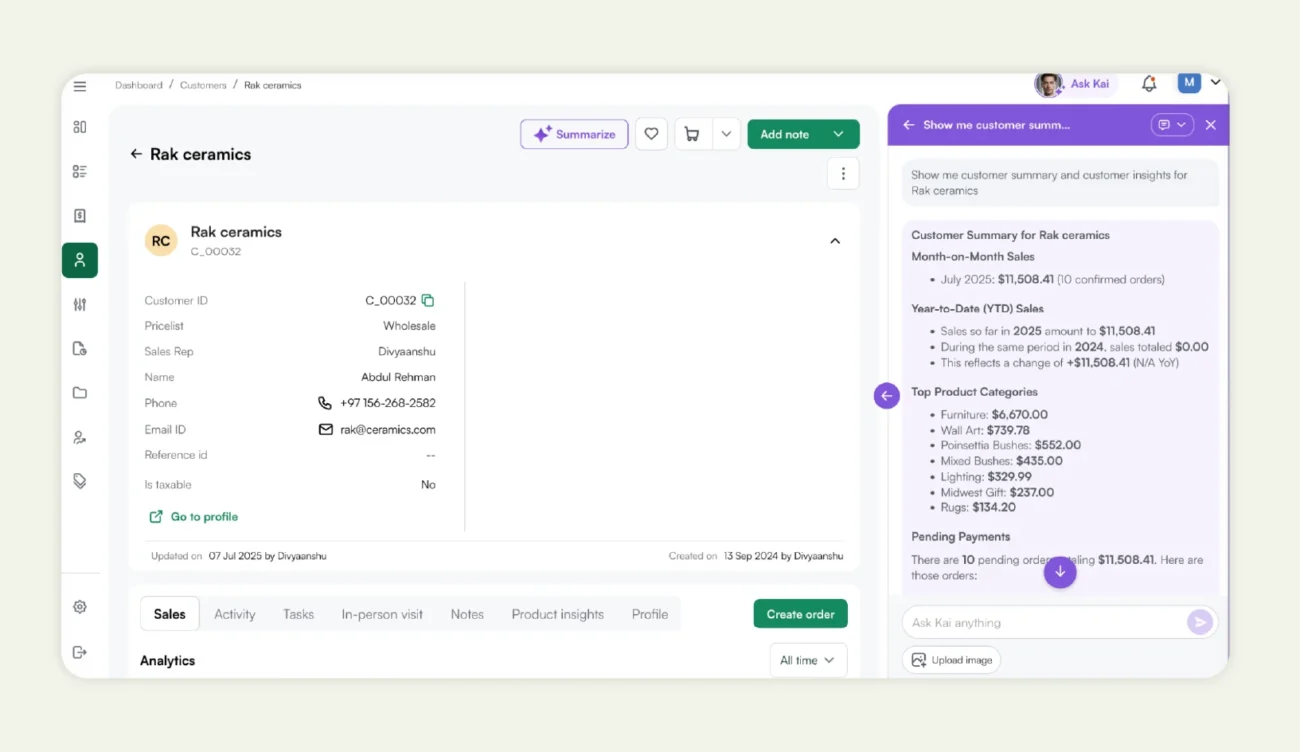
Smart recommendations: Our machine learning analyzes buyer behavior across browsing sessions, purchase history, and seasonal patterns to suggest the right products at precisely the right moment. When a buyer views hydraulic pumps, AI surfaces compatible fittings, maintenance kits, and replacement parts automatically, driving higher order values and increasing repeat purchases through relevant, timely suggestions.
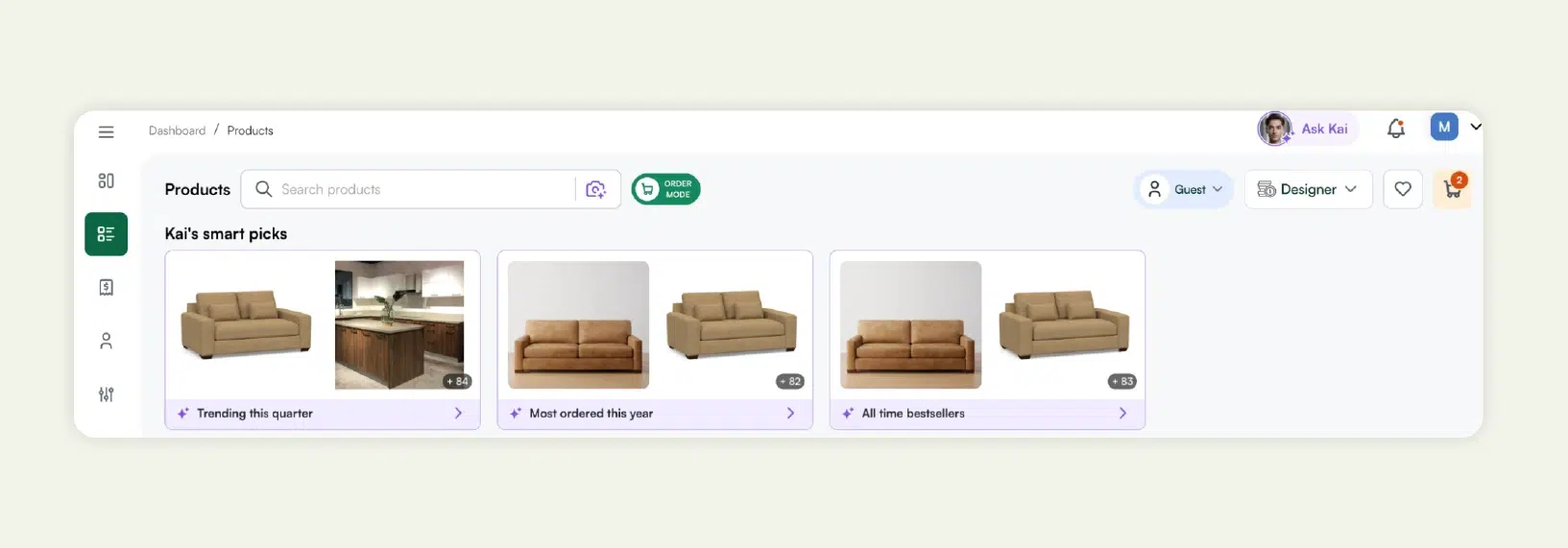
AI-powered lead scoring: Identify and prioritize your most valuable prospects using predictive intent signals and engagement patterns. Our AI tracks website visits, content downloads, email interactions, and browsing behavior to score leads automatically. Your sales team knows exactly who’s ready to buy now versus who needs more nurturing, reducing wasted effort and shortening sales cycles.
AI-powered search: From a typo-tolerant search that helps users quickly find the right products even with misspellings, to an AI-powered search that lets buyers upload product images, describe items in plain language, or use technical specs. Its visual and natural language search surfaces the closest matches instantly from your entire catalog. Buyers find products in seconds instead of minutes, reducing frustration and abandoned searches that cost sales.
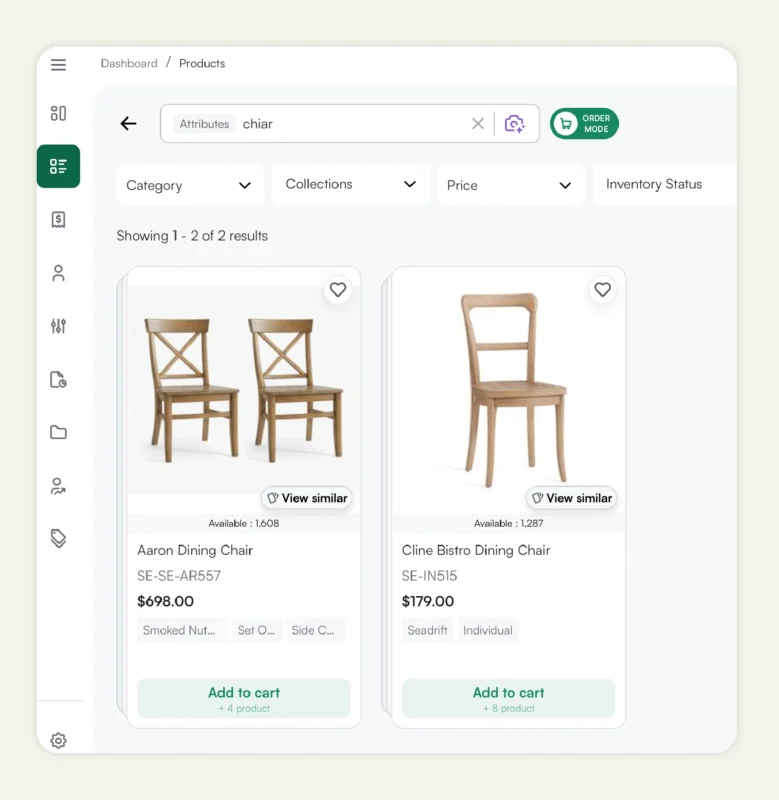
View similar: When an item is out of stock, the moment that typically sends buyers to competitors, AI scans your inventory and surfaces the closest visual alternatives automatically. Buyers never hit a dead end, and you capture sales that would otherwise evaporate. This feature alone reduces lost-opportunity costs for our customers.

Customer spotlight: Antique curiosities grows faster with AI-powered B2B ecommerce

Before switching to WizCommerce, Antique Curiosities, a boutique art wholesaler, faced operational hurdles that limited growth and frustrated customers:
- Their B2B website lacked essential workflows like product browsing without pricing for unapproved buyers
- Orders placed through their sales rep app weren’t visible on the website, causing confusion and duplicate work
- Managing complex product customizations (framing options, restoration services, shipping requirements) was difficult and error-prone
After moving to WizCommerce’s AI-powered platform, Antique Curiosities experienced dramatic improvements:
- 20% increase in online sales within six months through intelligent recommendations and personalized experiences
- 90% drop in website navigation issues as AI-powered search helped buyers find specific art pieces instantly
- 10+ hours saved weekly through faster order entry, automated workflows, and AI-assisted customer service
Read the full case study to see how Antique Curiosities transformed their wholesale operations, scaled efficiently, and delivered exceptional buyer experiences with WizCommerce.
Conclusion
AI in B2B ecommerce has moved from experimental technology to business-critical infrastructure in 2025. With 67% of B2B companies already using AI in their ecommerce platforms and the global market reaching $32.11 trillion, the question isn’t whether to adopt AIit’s how quickly you can implement it to stay competitive.
The benefits are clear and measurable: 25% faster sales cycles, 60% operational cost reductions, revenue increases, and dramatically improved customer experiences that drive loyalty and repeat business. From AI-powered search and personalized recommendations to demand forecasting and supply chain optimization, Machine learning transforms every aspect of B2B operations.
Businesses that approach AI strategically, starting with high-impact use cases and scaling methodically, position themselves for sustained competitive advantage. To make AI truly work for your wholesale or manufacturing operations, start by identifying your biggest pain points, whether it’s buyer experience, operational efficiency, or sales optimization, and implement intelligence solutions that deliver measurable ROI.
Ready to harness AI’s power in your B2B ecommerce operations? See what WizCommerce can do for your business. Book a demo today to speak with one of our experts.
FAQs
How is AI used in B2B ecommerce?
Understanding how to use AI in B2B ecommerce effectively starts with identifying high-impact use cases. It used to personalise product recommendations, forecast demand from buying patterns, optimise pricing in real time, and detect potential fraud. It also automates manual tasks like data entry, inventory updates, and lead scoring, helping teams work smarter and focus on growth.
What are the benefits of AI in B2B ecommerce?
AI in B2B eCommerce helps businesses personalize customer experiences, make smarter data-driven decisions, and automate manual processes for greater efficiency. It streamlines supply chain management, improves marketing precision, supports scalable growth, and strengthens customer relationships for higher lifetime value.
How to use AI in B2B ecommerce effectively?
To effectively use AI in B2B ecommerce, start with high-impact areas like product search, chatbots, dynamic pricing, or demand forecasting. Keep your data clean, roll out Artificial Intelligence in phases, and track results. Train your team to use automation as a support tool, not a replacement, and connect it with your existing systems (ERP, CRM, ecommerce platforms) for smooth data flow and continuous improvement.
Will AI replace B2B sales teams?
No, AI won’t replace B2B sales teams; it makes them more effective. By automating routine tasks like data entry, lead scoring, and follow-ups, Artificial Intelligence frees sales reps to focus on what really moves deals forward: building relationships, understanding client needs, and closing sales. It’s an assistant, not a replacement.
What is the future of AI in B2B ecommerce?
The future of AI in B2B ecommerce is predictive, autonomous, and deeply integrated by 2027-2030. Expect smarter personalization, self-optimizing supply chains, AI assistants that handle complex buyer interactions, and tighter system integrations that eliminate silos. It’ll level the playing field, giving even smaller B2B businesses enterprise-grade intelligence and automation once reserved for big players.
What are the main challenges of implementing AI in B2B ecommerce?
The biggest challenges of implementing AI in B2B ecommerce include data privacy compliance, high setup costs, integration with old systems, and organizational resistance from employees fearing displacement. AI models also need constant refinement to stay accurate, and customizing them for complex B2B pricing or workflows can be tricky. The key is to roll out AI in phases, invest in training, and treat it as a long-term strategy, not a quick fix.






